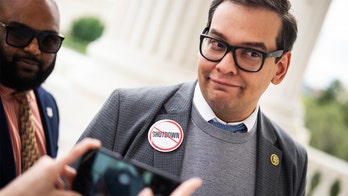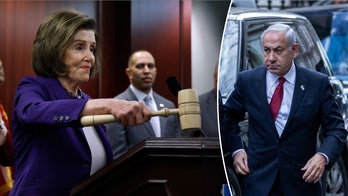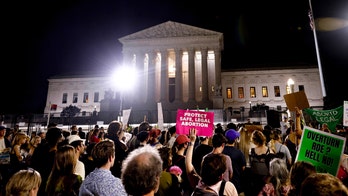Obama Shakeup Shifts Administration Toward Big Business, Wall Street
“Every president, after a couple of years, is going to go through some sort of transition, partly prompted by the fact that people are working so darn hard.”
-- President Obama in an interview with the New York Times about the shakeup in his administration.
New chief of staff, new chief economic adviser, new press secretary, new national security adviser, new senior political adviser – sounds like a shakeup to Power Play.
After weeks of brushing aside suggestions that there were big changes brewing for the Obama administration, the dam broke Wednesday with the announcement from Press Secretary Robert Gibbs that he too would be out.
It’s hard to keep denying a shakeup when you yourself are one of the shaken.
While Gibbs was explaining his new role as some kind of paid outside consultant to the president, upstairs in the executive mansion, the president was meeting with William Daley about becoming his new chief of staff.
The whole thing had been handled to this point with the quiet delicacy of carrying a sleeping baby. No loud noises. No sudden moves.
The desire was to prevent the impression that President Obama needed to change direction following the punishing midterm elections. Plus, Obama, a creature of habit, seemed to resist the idea that his inner circle would be changed.
“No Drama” Obama wanted to avoid the palace intrigues that come with this kind of turnover. But, he couldn’t avoid it in the end.
Gibbs, whose name was floated for everything from new senior adviser to chairman of the Democratic Party, comes as close to an awkward exit as any of the moves thus far. He has no job to go to and will leave after a tenure marked by having sometimes said too much (“professional left,” “Republican cabal,” “no doubt” that Democrats could lose the House, etc.) and for bringing sarcasm to full flower in the briefing room.
Gibbs’ new position as an outside adviser to the president is amorphous. It may be the precursor to Gibbs returning as campaign spokesman in 2012, or it may just be a way to soften his landing. The nature of his replacement will tell us something about which it is. If Obama taps Gibbs’ deputy, Bill Burton, or someone else from his team, it would be a sign of trust and appreciation. If Obama goes outside of Gibbs’ communications shop, it would be a sign of dissatisfaction.
But, better to leave that kind of speculation to the Beltway navel gazers and advanced Obamologists who believe they can detect the pulse of the administration from the flavor of shave ice the president orders.
What matters most is where Obama is heading. And right now, it seems to be in the direction of big business.
Obama has agreed to speak to the U.S. Chamber of Commerce next month, the same folks he accused two months ago of using secret Chinese money to steal elections.
And the staff changes reinforce the big business pivot. If Obama takes Daley as chief of staff and taps Gene Sperling as his top economic adviser, he will be putting two men with considerable corporate banking ties in his inner circle.
Daley is an officer at JP Morgan and Sperling, who was Bill Clinton’s budget boss and who has been advising Treasury Secretary Timothy Geithner on policy, was a highly paid consultant to Goldman Sachs.
Liberals are deeply unhappy about the moves. Sperling is especially irksome to the left. Not only did he make nearly $900,000 in 2008 advising Goldman on “charitable giving,” he gave two briefings to hedge funds that year that netted him $250,000 aside from his $480,000 salary as director of the Philadelphia Stock Exchange. The president’s political base is also not happy the Sperling was a protégé of former Treasury Secretary Robert Rubin, who cashed in as Chairman of Citigroup.
But, the lesson learned from 2010 seems to be that Obama must win back the support of the business community in order to be politically viable. Rather than trying to embrace the small-business, small-government mantra of the Tea Party, the president seems to be going whole hog for a Clintonian partnership between government and big business.
Plus, as the Obama compromise on tax rates shows, the short-term desire to improve the anemic economy, trumps the long-term wish to “spread the wealth around.”
Obama’s legacy as one of the most liberal presidents in history will be assured if he can protect his health plan, financial regulations and enact an administrative crackdown on global warming.
The belief is likely that forging some partnerships with big business now may help him get reelected and to protect that legacy.
Big Pentagon Cuts Pushed As China Bulks Up
"Everything's on the table, including expenditures at the Pentagon."
-- House Majority Leader Eric Cantor (R-VA) discussing budget cuts on “Special Report with Bret Baier.”
Defense Secretary Robert Gates is expected to brief Congressional budget bosses on his plans for deep reductions to long-range weapons programs to finance the war in Afghanistan.
On the chopping block in Gates’ plan to hew $80 billion out of the regular Pentagon budget over the next five years are the F-35 joint strike fighter, a landing craft for the Marines, and other implements of conventional warfare.
The Pentagon plan is instead to push resources into the counterinsurgency and nation-building effort in Afghanistan in order to meet budget mandates set by the Obama administration.
While Republicans are showing a new willingness to cut defense spending, Gates’ proposals for cutting spending come at the very moment China is exerting itself as a potential superpower.
Gates is scheduled to begin a three-day visit to China on Sunday to talk about the relationship between the two militaries. It comes as China has leaked word of its increasing investment in advanced weapons systems – a joint strike fighter of its own, an aircraft-killer missile system and even an aircraft carrier of its own.
While many Tea Party folks, like the Pauls, are skeptical of the high-cost of the Afghan nation-building strategy, the big-ticket items designed to guarantee future military superiority are still popular with the “peace through strength” crowd.
Plus, big weapons systems produce big contracts and big employment at defense plants.
Senate Dems Get Wobbly
“There’s other ways we can get people into the pool - I hope - other than a mandate, and we need to look at that.”
-- Sen. Claire McCaskill (D-MO) on MSNBC saying that she would consider repealing the provision in President Obama’s national health-care law that requires all Americans to buy private insurance or join a government program.
The biggest immediate danger to President Obama’s agenda is that his fellow Democrats in the Senate may start whittling away at his national health care law.
Missouri’s Claire McCaskill threw wide the door to changes on Wednesday when she suggested that the central tenet of the program -- mandatory purchasing of health insurance – was up for debate.
McCaskill is in the same boat as other Democrats from conservative states facing reelection next year. She and Ben Nelson (D-NE), Joe Manchin (D-WV) and Jim Webb (D-VA) all must find ways to distance themselves from their prior support from the unpopular plan. That may make them more susceptible to Republican overtures to change the plan.
And since the plan is in large part still being produced by federal regulators and the subject of a serious constitutional challenge in federal court, making changes now might lead to utter collapse.
As much as the Obama White House is looking to pivot toward jobs, defending the health law will have to be a top priority.
Rules Rows in the House and Senate
“It’s the first day, and they’ve violated everything they said they were going to do.”
-- Rep Louise Slaughter (D-NY) denouncing Republican legislative tactics to Politico.
Is the Republican House bill to repeal President Obama’s national health-care law a meaningless, symbolic time waster or a diabolical power grab?
Though one would not think that both are possible, Democrats say yes.
While Republicans are promulgating rules to expand the committee process and open up legislation to more amendments, they will first put through a two-page bill that would repeal the Obama law without any of the procedural niceties.
House Democrats, who ran a closed process in the majority, are howling and claiming the Republicans are abusing their new power, ignoring the minority, etc. But at the same time, House Democrats say that the bill is only symbolic – a distraction doomed in the Senate only done to make Republicans feel good and placate the Tea Party.
So if the bill doesn’t matter…? Never mind.
Over in the Senate, the battle is over the filibuster.
While there is little thought that the proposal from liberal members of the Democratic caucus that the 60-vote threshold for controversial legislation would be scrapped, there seems to be some emerging consensus that it’s bad practice to let Senators put secret holds on nominations and legislations.
The current rules allow lawmakers to anonymously block appointees and bills, but a reform backed by Sen. Chuck Grassley (R-IA) would make the process transparent.
Pelosi Does Not Go Softly
“40 Words.”
-- How much longer John Boehner’s speech accepting the speakership of the House was than Nancy Pelosi’s remarks introducing him.
When outgoing Speaker Richard Gephardt handed the gavel over to Newt Gingrich on Jan. 4, 1995, he used 471 words to thank his colleagues and introduce the speaker elect.
It was a mere throat clearing compared to the 6,025-word exercise in orotundity from Gingrich that followed.
Outgoing Speaker Nancy Pelosi used 1,063 words in her remarks before Boehner took the gavel. She reviewed her accomplishments, warned her successor against partisanship and discussed her place in history as a woman and an Italian American. She even made fun of the size of John Boehner’s gavel. It sounded something like a mini-state of the union.
Boehner didn’t measure up to the stem-winder delivered by Gingrich back in 1995, but at 1,123 words, barely bested Pelosi.
And Now, A Word From Charles
“When these members were sworn in today, they did not swear to defend the country or the army or the people, it was to defend the Constitution. That is the essence of America, and it makes us unique. And it is why we are a country not of blood or race, but ideas.”
-- Charles Krauthammer on “Special Report with Bret Baier.”




